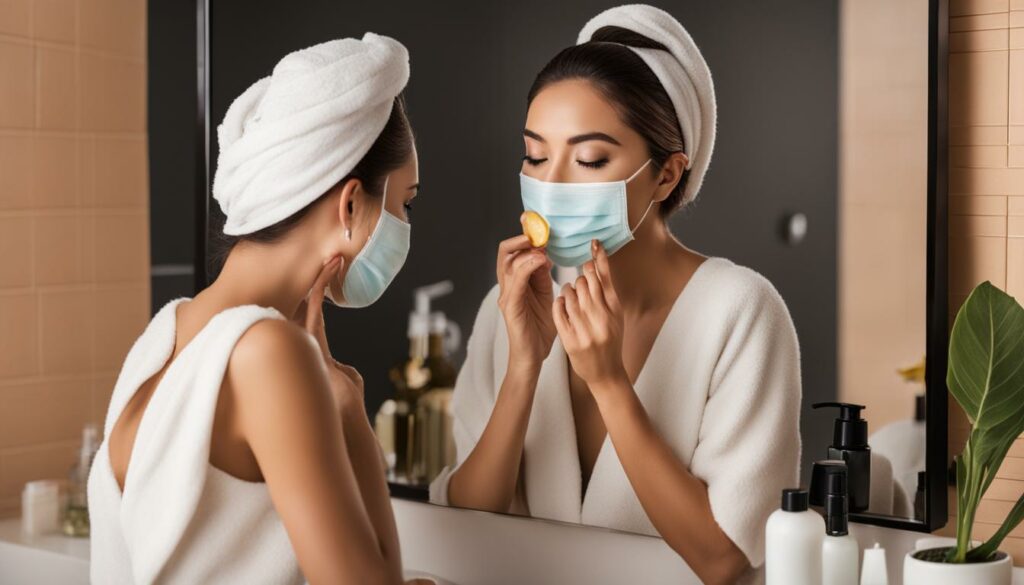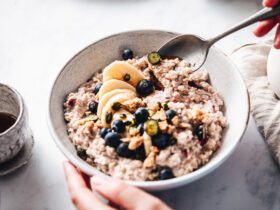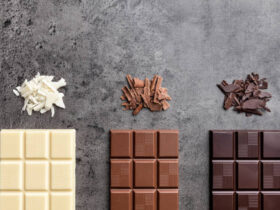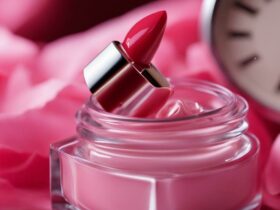Facial masks are an essential part of skincare routines, offering a multitude of benefits for your skin. But what exactly is the purpose of facial masks? Let’s dive into the world of masks and explore their importance in skincare.
Key Takeaways:
- Facial masks serve various functions in skincare, from hydrating and moisturizing to refining pores and improving skin texture.
- There are different types of facial masks available, including cream, gel, clay, exfoliating, and warming masks.
- By understanding the purpose and benefits of facial masks, you can choose the right mask for your skin type and concerns.
- Using facial masks regularly can enhance your skincare routine and promote overall skin health.
- Don’t underestimate the power of facial masks in achieving a radiant, glowing complexion.
Benefits of Masking: What You Didn’t Know About Masks
Facial masks are more than just a pampering treat for your skin. They offer a multitude of benefits that can enhance your skincare routine and improve the overall health of your complexion. By using facial masks regularly, you can take your skincare game to the next level and achieve a radiant, youthful glow.
One of the key advantages of using facial masks is their ability to deliver highly concentrated actives, vitamins, and nutrients directly to your skin. These potent ingredients work to nourish and rejuvenate your skin, targeting specific concerns and providing targeted benefits. Whether you’re looking to hydrate and moisturize dry skin, refine pores, reduce the appearance of fine lines and wrinkles, or brighten dark spots, there’s a mask out there to suit your needs.
Additionally, facial masks create a physical barrier on your skin that prevents the beneficial ingredients from evaporating, allowing them to penetrate deeply and work their magic. This means that your skin can absorb the goodness more effectively, resulting in noticeable improvements in texture, tone, and overall complexion.
| Benefits of Facial Masks | Advantages of Using Facial Masks |
|---|---|
| Hydrates and moisturizes | Delivers highly concentrated actives |
| Refines pores | Nourishes and rejuvenates skin |
| Improves skin texture | Targeted benefits for specific concerns |
| Absorbs excess oil and dirt | Prevents evaporation of beneficial ingredients |
| Decongests clogged pores | Effective absorption and penetration |
| Minimizes fine lines and wrinkles | Noticeable improvements in texture and complexion |
| Enhances elasticity | Provides a radiant, youthful glow |
| Improves the look of breakouts | |
| Brightens dark spots |
With the numerous benefits they offer, facial masks are undoubtedly a valuable addition to any skincare routine. So why not treat yourself to a masking session and give your skin some much-needed TLC?
Types Of Face Masks Available
When it comes to face masks, there are a variety of options available to suit different skin types and concerns. Understanding the benefits and advantages of each type can help you choose the perfect mask for your skincare routine. Let’s explore the different types of face masks:
Cream Masks
Cream masks are moisturizing and nourishing, making them ideal for addressing dry, dehydrated, or aging skin. These masks often contain ingredients like hyaluronic acid and natural oils to deeply hydrate the skin and restore its natural moisture barrier. Cream masks are perfect for boosting hydration levels and leaving your skin feeling soft and supple.
Gel Masks
Gel masks are lightweight and cooling, making them suitable for oily to normal skin types. These masks are typically water-based and can help balance excess oil production while providing a refreshing and soothing sensation. Gel masks are known for their ability to moisturize the skin without leaving a heavy or greasy residue.
Clay Masks
Clay masks are excellent for treating acne-related conditions. They work by absorbing excess oil, reducing inflammation, and unclogging pores. Clay masks are available in different varieties, such as bentonite clay, kaolin clay, and charcoal masks. These masks help draw out impurities and toxins from the skin, leaving it feeling clean and refreshed.
Exfoliating Masks
Exfoliating masks are designed to remove dead skin cells and promote a smoother, brighter complexion. These masks often contain gentle exfoliating agents like fruit enzymes or alpha hydroxy acids (AHAs) to dissolve dead skin cells and reveal a fresh layer of skin. Exfoliating masks can improve the skin’s texture and enhance the effectiveness of other skincare products.
Warming Masks
Warming masks are unique as they heat up upon contact with the skin. This increase in temperature improves blood flow to the face, resulting in a fresh and healthy complexion. Warming masks often contain ingredients like ginger or cinnamon to provide a comforting and invigorating experience. These masks can improve circulation and promote a radiant-looking skin.
Each type of face mask offers specific benefits and advantages tailored to different skin types and concerns. By incorporating the right mask into your skincare routine, you can effectively address your skin’s needs and achieve a healthier, more glowing complexion.
The Best Face Mask For Your Skin Type
Understanding Your Skin Type
Before choosing a face mask, it is important to understand your skin type. This will help you select the right mask that suits your specific needs. The four main skin types are:
- Dry skin: characterized by a lack of oil production, often resulting in tightness and flakiness.
- Oily skin: characterized by excessive oil production, leading to a shiny complexion and frequent breakouts.
- Combination skin: characterized by both dry and oily areas, with the T-zone (forehead, nose, and chin) being oilier.
- Sensitive skin: characterized by easily irritated and reactive skin, prone to redness and allergies.
The Best Face Masks for Different Skin Types
Now that you know your skin type, here are the best face masks recommended for each category:
| Skin Type | Recommended Face Mask |
|---|---|
| Dry Skin | Strawberry Rhubarb Masque |
| Oily Skin | Citrus & Kale Potent C+E Masque |
| Combination Skin | Snow Mushroom & Reishi Masque |
| Sensitive Skin | Calm Skin Arnica Masque |
For normal skin types, the Stone Crop Masque is a versatile option that provides hydration and balance. Each of these masks is specifically formulated with ingredients that cater to the unique needs of the respective skin types.
Selecting the Right Mask for Optimal Results
Remember that the best face mask for your skin type may vary depending on your individual preferences and needs. It is always recommended to patch test any new product before applying it to your entire face to ensure compatibility. Additionally, incorporating regular face mask treatments into your skincare routine can help address specific concerns and improve overall skin health.

The Best Type Of Face Mask For Your Age
Choosing the right face mask is not only about addressing your skin type and concerns but also considering your age. As we age, our skin undergoes various changes, and using a mask specifically formulated for our age can help address age-related skin concerns and maintain a youthful complexion.
Table: Best Face Masks for Different Age Groups
| Age Group | Recommended Face Mask |
|---|---|
| 20s | Strawberry Rhubarb Masque |
| 30s | Citrus & Kale Potent C+E Masque |
| 40s | Eight Greens Phyto Masque |
| 50s | Firm Skin Acai Masque |
| 60s and beyond | Bamboo Age Corrective Masque |
Each recommended mask is carefully formulated with ingredients that target specific age-related skin concerns. In our 20s, the Strawberry Rhubarb Masque helps nourish and protect the skin from environmental stressors. In the 30s, the Citrus & Kale Potent C+E Masque provides potent antioxidants to combat early signs of aging. As we enter our 40s, the Eight Greens Phyto Masque helps improve the appearance of hormonal imbalances. The Firm Skin Acai Masque in our 50s helps firm and tighten the skin. Finally, for individuals in their 60s and beyond, the Bamboo Age Corrective Masque provides deep hydration and helps improve the look of mature skin.
By choosing a face mask tailored to your age, you can enhance your skincare routine and effectively address age-related skin concerns. Remember to always consult with a skincare professional to determine the right mask for your specific needs.
The Rich History of Face Masks
Face masks have a fascinating history that spans across different cultures and time periods. Ancient beauty rituals often included the use of face masks to enhance the complexion and promote healthy-looking skin.
In ancient India, Ayurvedic medicine utilized face masks made from herbs, oils, and natural fibers to nurture and beautify the skin. Greek and Roman civilizations also had elaborate skincare routines that involved the application of face masks containing ingredients like olive oil and clay. Cleopatra, the famous Egyptian queen, was known for her love of gold masks and other luxurious skincare treatments. Ancient Chinese women applied face masks containing pearl powder and other natural ingredients to achieve porcelain-like skin.
The use of face masks has been deeply ingrained in beauty practices across various cultures throughout history, and they continue to be an essential part of skincare routines today.
These traditional face masks not only provided physical benefits to the skin but also played significant roles in cultural practices and rituals. They were considered symbols of beauty, purity, and self-care.
Today, face masks have evolved with advancements in skincare technology, but their historical significance and influence remain intact. Understanding the rich history of face masks helps us appreciate their enduring appeal and the timeless beauty secrets they hold.

Ancient Beauty Rituals
- Ancient Indian Ayurvedic medicine used face masks made from herbs, oils, and natural fibers.
- Greek and Roman civilizations had skincare routines involving face masks with ingredients like olive oil and clay.
- Egyptian queen Cleopatra famously used gold masks for her beauty regimen.
- Ancient Chinese women applied face masks containing pearl powder for porcelain-like skin.
Traditional Face Masks in Different Cultures
- Face masks played a significant role in beauty practices across various cultures throughout history.
- They were considered symbols of beauty, purity, and self-care.
- Each culture had its unique approach to skincare and used specific ingredients in their face masks.
Popular Face Masks and When To Use Them
When it comes to face masks, there are numerous options available in the market to address various skin concerns. Understanding which mask to use and when to use it is key to achieving the best results for your skin. Here, we explore some popular face masks and their recommended usage:
1. Vaseline® Jelly Face Mask
If you’re dealing with blackheads and want to lock in moisture, a Vaseline® Jelly face mask can be highly effective. Apply a thin layer of Vaseline® Jelly to your skin and let it sit for about 15 minutes. Gently wipe off the jelly using a warm washcloth to reveal softer, smoother, and hydrated skin.
2. Bentonite or Sulfur-based Clay Masks
For those struggling with acne, bentonite or sulfur-based clay masks are recommended. These masks help absorb excess oil, unclog pores, and reduce inflammation. Apply the clay mask to your cleansed skin, leave it on for the recommended time stated on the product, and gently rinse off with warm water.
3. Cream Masks
If you have dry skin, cream masks containing hydrating ingredients like hyaluronic acid and coconut oil are excellent choices. Apply a generous amount of the cream mask to your face and neck, avoiding the eye area. Leave it on for the specified time, then rinse off with lukewarm water for a nourished and moisturized complexion.
4. Exfoliating Masks
To remove dead skin cells and enhance the skin’s natural turnover process, exfoliating masks are ideal. These masks often contain gentle exfoliants like fruit enzymes or AHAs (alpha hydroxy acids). Apply the exfoliating mask to clean skin, leave it on for the recommended time, and rinse off with warm water to reveal a smoother and brighter complexion.
Remember, it’s crucial to read the instructions provided with each face mask to ensure proper usage and avoid any potential skin irritations. Additionally, consult with a dermatologist if you have specific skin concerns or allergies before incorporating new face masks into your skincare routine.
Conclusion
Facial masks serve multiple purposes in skincare routines. They provide hydration, refine pores, improve skin texture, absorb excess oil, decongest pores, minimize signs of aging, and brighten dark spots. Whether you have dry, oily, combination, or sensitive skin, there are different types of masks available to cater to your specific needs. Cream masks, gel masks, clay masks, exfoliating masks, and warming masks each offer unique benefits for different skin types and concerns.
It’s fascinating to discover that masks have a deep-rooted history in beauty practices across various cultures. Ancient civilizations like India, Greece, Rome, and China all had their own skincare rituals involving face masks and natural ingredients. These traditions continue to inspire modern skincare innovations today.
Understanding the benefits of facial masks and choosing the right one for your skin type and concerns can greatly enhance your skincare routine and overall skin health. So, go ahead and indulge in the power of facial masks to achieve a radiant and healthy complexion!
FAQ
What is the purpose of facial masks?
Facial masks serve multiple purposes in skincare routines. They provide hydration, refine pores, improve skin texture, absorb excess oil, decongest pores, minimize signs of aging, and brighten dark spots.
What are the benefits of using facial masks?
Facial masks deliver highly concentrated actives, vitamins, and nutrients to the skin, improving its overall health. They create a physical barrier that locks in the beneficial ingredients, allowing the skin to absorb them more efficiently.
What are the different types of face masks available?
There are different types of face masks available, including cream masks, gel masks, clay masks, exfoliating masks, and warming masks.
How do face masks work?
Face masks provide numerous benefits by targeting specific skin concerns and conditions. They hydrate and moisturize dry skin, refine large pores, improve skin texture, absorb excess oil and dirt, decongest clogged pores, minimize the appearance of fine lines and wrinkles, enhance elasticity, improve the look of breakouts, and brighten dark spots.
How important are facial masks in skincare routines?
Using facial masks provides numerous advantages for the skin. They deliver highly concentrated actives, vitamins, and nutrients, improving the overall health of the skin. Masks also create a physical barrier that locks in the beneficial ingredients, allowing the skin to absorb them more efficiently.
What are the advantages of using facial masks?
Facial masks can hydrate and moisturize dry skin, refine large pores, improve skin texture, absorb excess oil and dirt, decongest clogged pores, minimize the appearance of fine lines and wrinkles, enhance elasticity, improve the look of breakouts, and brighten dark spots.
What is the role of facial masks in skincare?
Facial masks play a crucial role in skincare by targeting specific skin concerns and conditions. They provide hydration, refine pores, improve texture, absorb excess oil, decongest pores, minimize signs of aging, and brighten dark spots.
What are the functions of facial masks?
Facial masks have various functions, including hydrating and moisturizing the skin, refining pores, improving texture, absorbing excess oil and dirt, decongesting clogged pores, minimizing signs of aging, and brightening dark spots.
What are the benefits of wearing facial masks?
Wearing facial masks can improve the overall health of the skin by delivering highly concentrated actives, vitamins, and nutrients. Masks create a physical barrier that locks in the beneficial ingredients, allowing for more efficient absorption by the skin.
Why should I use facial masks?
Using facial masks provides numerous advantages for the skin. They can hydrate and moisturize dry skin, refine large pores, improve skin texture, absorb excess oil and dirt, decongest clogged pores, minimize the appearance of fine lines and wrinkles, enhance elasticity, improve the look of breakouts, and brighten dark spots.
What types of face masks are available?
There are different types of face masks available, including cream masks, gel masks, clay masks, exfoliating masks, and warming masks.
Which face mask is best for my skin type?
The best face mask for your skin type will depend on your specific needs. For dry skin, the Strawberry Rhubarb Masque is recommended, while the Citrus & Kale Potent C+E Masque is suitable for oily skin. Combination, sensitive, and normal skin can benefit from the Snow Mushroom & Reishi Masque, Calm Skin Arnica Masque, and Stone Crop Masque, respectively. There are also masks available for specific skin concerns such as acne, brightening, pore refining, and stimulating.
Which face mask is best for my age?
The best type of face mask for your age will depend on your specific age-related skin concerns. In your 20s, the Strawberry Rhubarb Masque is recommended. In your 30s, the Citrus & Kale Potent C+E Masque is suitable. For those in their 40s, the Eight Greens Phyto Masque is recommended, and for those in their 50s, the Firm Skin Acai Masque is advised. Lastly, the Bamboo Age Corrective Masque is best for those in their 60s and beyond.
What is the history of face masks?
Face masks have a rich history dating back to ancient civilizations. Ancient Indian Ayurvedic medicine used masks made of herbs, oils, and natural fibers. Ancient Greeks and Romans had skincare rituals involving face masks and natural ingredients like olive oil and clay. Egyptian queen Cleopatra famously used gold and other luxurious ingredients in her beauty regimen. Ancient Chinese women used pearl powder and other natural ingredients for porcelain skin.
What are some popular face masks available in the market?
There are various popular face masks available in the market for different skin concerns. For blackheads, using a Vaseline® Jelly face mask can be effective in locking in moisture. For acne, bentonite or sulfur-based clay masks are recommended. Dry skin can benefit from cream masks containing hydrating ingredients like hyaluronic acid and coconut oil.
When should I use face masks?
It is important to choose the right face mask based on specific skin concerns and use them accordingly. Face masks can be incorporated into your skincare routine based on your individual needs and desired results.














